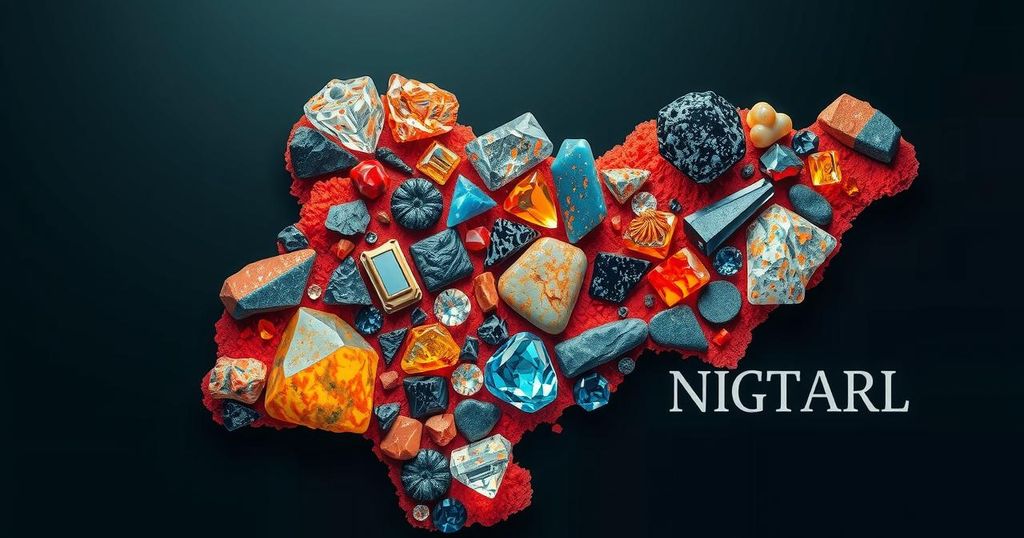Unlocking Nigeria’s Mineral Potential Through Effective Governance

Nigeria is rich in minerals pivotal for energy transition, such as lithium and nickel. However, the sector is hampered by outdated laws, illicit mining, and past neglect. To leverage these resources, significant reforms in governance and investment strategies are crucial.
Nigeria possesses vast mineral resources essential for the global energy transition, including lithium, nickel, and significant quantities of gold and gemstones. However, due to a historical reliance on oil, the mining sector has been neglected, suffering from outdated legislation and ineffective governance. To stimulate growth, Nigeria must update mining laws, improve data reliability, attract investment, and ensure illegal mining is curbed. Significant reforms, including the establishment of a regulatory commission and community-based initiatives, are critical for transforming the sector and optimising its economic benefits.
Nigeria’s mining sector, despite being rich in essential minerals for batteries and other technologies, has been overshadowed by its oil wealth since the 1960s. The discovery of oil diverted attention from mining, leading to a decline in the industry. Current legislation is outdated and conflicts with state-level land governance, hindering investment. With the support of international financial institutions, there is progress in data collection and accessibility, yet substantial reform is required to realise the full potential of the sector and combat illegal mining operations that cost the country billions annually.
To unlock Nigeria’s mineral wealth, comprehensive reforms are urgently needed. This includes revising outdated laws to align with modern practices, enhancing the governance structure, and curtailing illegal mining. Implementing these measures will stimulate investment in the sector, boost economic growth, and ensure sustainable development while safeguarding community interests. The government’s proactive steps are essential to avoid repeating past mistakes and harnessing the full potential of Nigeria’s rich mineral resources.
Original Source: blogs.lse.ac.uk




